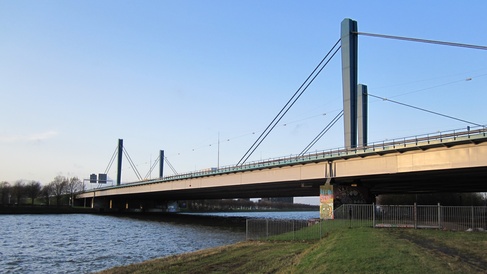
On 08 May Dr Ramaseshan Kannan, head of Computational Science at Arup, recently delivered an enlightening talk titled “Blending Data and Computational Sciences for Sustainability” at CSIC. Drawing on his extensive experience in both academia and industry, particularly through his RAEng Industrial Fellowship at University of Cambridge's Civil Engineering department, Dr Kannan explored the innovative integration of machine learning, computational science, and civil engineering to address the pressing challenges of resilience and sustainability in the built environment.
His talk focused on the critical need for interdisciplinary approaches to tackle the complex problems facing modern urban infrastructures. He highlighted some key areas of Arup’s translational research program, which aims to develop and apply cutting-edge technologies for design and assessment of infrastructure systems.
One of the topics Dr Kannan covered was the use of surrogate models in early-stage design prototyping. Surrogate models, which are simplified representations of more complex numerical models, enable engineers to quickly evaluate various design options without the need for time-consuming and computationally expensive simulations. This approach not only accelerates the design process but also helps in identifying design solutions with reduced embodied carbon from the outset.
Dr Kannan also discussed the application of global sensitivity analysis in structural and geotechnical finite element modelling. This technique assesses the impact of different input variables on the output of a model, allowing engineers to understand which factors are most critical to its response. By identifying these key variables, engineers can focus their efforts on optimising the most influential properties in their designs, query the validity of their models or reduce the computational burden of solving inverse problems. They can thus design more robust and efficient structures and reduce uncertainties in assessing existing ones.
Another significant area of focus in Dr Kannan’s talk was the role of inverse and uncertainty quantification problems in design and assessment. Inverse problems involve determining the unknown causes of observed effects, which is crucial in scenarios where direct measurements are difficult or impossible. Uncertainty quantification, on the other hand, deals with the inherent uncertainties in modelling and simulations, ensuring that engineers can make informed decisions even in the face of incomplete or ambiguous data.
Throughout his talk, Dr Kannan illustrated these concepts with practical examples from his work at Arup, showcasing how these advanced computational techniques are being trialled on real-world projects. He shared case studies demonstrating the successful implementation of these methods in various structural engineering tasks, from the design of resilient buildings to the assessment of ageing infrastructure.
Dr Kannan’s insights underscore the transformative potential of blending data science, machine learning, and computational science with traditional civil engineering practices. By leveraging these interdisciplinary approaches, engineers can develop innovative solutions that enhance the resilience and sustainability of the built environment, ultimately contributing to a more sustainable future.
Read more here.
